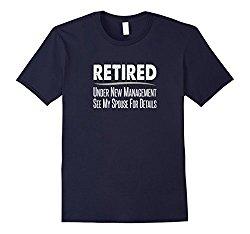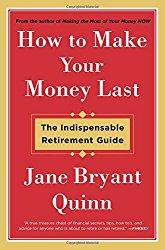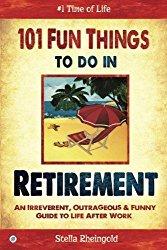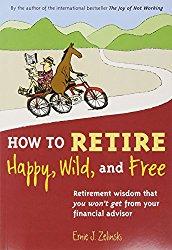This afternoon I got into a conversation with a friend about money management in retirement. He has the opportunity to take a pension as an annuity, or to take a lump sum and invest it himself and was wondering about which path was better. He also has a couple of different 401k funds. He was wondering if he should go to a financial planner, or just invest himself.
One thing about personal finance is that it is just that – personal. The right answer for you depends on your financial situation, plans in retirement, and risk aversion. If you are in great financial shape with way more money than you need, you can take more risk since you could take a big market drop without getting into trouble. If you are planning to sit around the house in retirement and are scared of the prospect of losing any money, you might invest the money very conservatively and give up better returns in exchange for stability and predictability. So there is no right answer for everyone.
Hey – if you like The Small Investor, help keep it going. Buy a copy of SmallIvy Book of Investing: Book1: Investing to Grow Wealthy
Personally, I have a great deal of experience and knowledge about investing, having invested for the last 30 plus years. I was investing during the 1987 crash where the Dow Jones Industrial Average fell 25% in one day. While it was quite a shock to see your stocks fall by 25%, or even get cut in half in a single day, I held on and saw prices recover to pre-crash levels within about a year. I also was investing through the dot-com bust in 2000 (and shorting some dot-com stocks and oil refineries) and the housing bust in 2008 (and shorting some thrifts and housing lenders).
I’ve learned from this experience that things can go really badly in a short amount of time and that sometimes it seems like everything is going to zero. I’ve also learned, however, that things usually turn out OK if you just hold on, at least if you hold onto a set of mutual funds or a whole basket of stocks. Sometimes with individual stocks, they do go down and never go back up again. These experiences have taught me both that volatility can be scary and that sometimes the best course of action is just to turn it all off and do other things since doing nothing is better than doing something. They have also taught me that I do have strong nerves and can weather a downturn without freaking out and going into all cash.

Based on this experience, I will handle my own investing when I retire and use the markets to provide the income I need. I know how to allocate the funding to provide the right amount of diversification and income at the right times. I also plan to have way more in my retirement accounts than the minimum I need so that I can invest more aggressively without worrying about a big market drop affecting my lifestyle.
For other people, an annuity may make sense since it takes away the worry about finding needed income. An annuity provides guaranteed income for a specified period of time. The best types of annuities to buy are the plain-vanilla types where you give them a specified amount of money and they provide you with a specified income. The other types where you can make additional returns based upon the performance of the stock market are just too complicated. Realize that the returns you’ll receive will be far less than market returns since the insurance company needs to protect themselves for the years where the markets decline since they guarantee that you can’t lose money. This means you’ll make 5% when the stock markets are providing 15% returns. You’re better off just using an annuity for income and then investing some of your money in index funds for stock market participation.
The main issue with annuities is that they have a lot of fees attached, and those fees are often difficult to sort out. Annuity salesmen are like whole life salesmen, using all sorts of jargon to sell you a really overpriced product. This is why you want to keep it simple. You’ll also want to ask three or four different providers how much monthly income you’ll get over a specified amount of time if you provide them a specified amount of money and compare the answers. For example, if you have $500,000 to give them for an annuity that will start paying immediately and pay you until you die, ask each provider how much you’ll receive each month. The one who will pay you the most per month, for the same amount invested and the same term, will be charging the lowest fees. If they won’t give you a straight answer on what they’ll pay, move onto another provider.


On the question of whether to invest yourself or hire a professional financial planner, I obviously plan to handle things myself since I know what I’m doing and really how little maintenance it takes to manage your money when you’re doing it right. Really, less is more when it comes to investing. I will still use other professionals like CPA’s, however, to help with the tax planning since that is an area that changes often.
Really, you could do very well on the investing side simply following three rules-of-thumb:
- Invest your age minus 10% in bonds, and the rest in stocks.
- Invest in low-cost, diversified, index mutual funds.
- Take no more than 3% of the value of your portfolio out in any given year.
The first rule causes you to protect a portion of your portfolio from the wild ride that stocks can offer by tempering it with bonds. As you get older and have less time to recover from a big stock market crash, you buy more bonds. The second rule makes sure you spread out your money over the whole market (a total market stock and bond fund can be used to ensure this) and also to limit fees by investing in index funds. The third rule makes sure you don’t take more out of your portfolio than it can replace while also keeping up with inflation.

For others, it makes sense to use a financial planner, but you need to be careful because there are a lot of bad financial planners out there. Many simply take a short course on the products offered by their company and then spend their time selling you those products. Even if you want to use a financial planner, it is better to at least have a basic knowledge of retirement investing before you go so that you can see if the person you’re dealing with knows what they’re doing or if they’re just trying to sell you something. Buy and read a couple of books, and start to read articles in The WallStreet Journal and, of course, The Small Investor to learn what you’re doing. You’ll also want to find a fee-only planner, who charges you by the visit or by the hour instead of charging you when you buy products from him/her. You don’t want them to have an incentive to sell you things, other than knowledge.

Want all the details on using Investing to grow financially Independent? Try The SmallIvy Book of Investing.
Have a burning investing question you’d like answered? Please send to [email protected] or leave in a comment.
Follow on Twitter to get news about new articles. @SmallIvy_SI
Disclaimer: This blog is not meant to give financial planning or tax advice. It gives general information on investment strategy, picking stocks, and generally managing money to build wealth. It is not a solicitation to buy or sell stocks or any security. Financial planning advice should be sought from a certified financial planner, which the author is not. Tax advice should be sought from a CPA. All investments involve risk and the reader as urged to consider risks carefully and seek the advice of experts if needed before investing.

